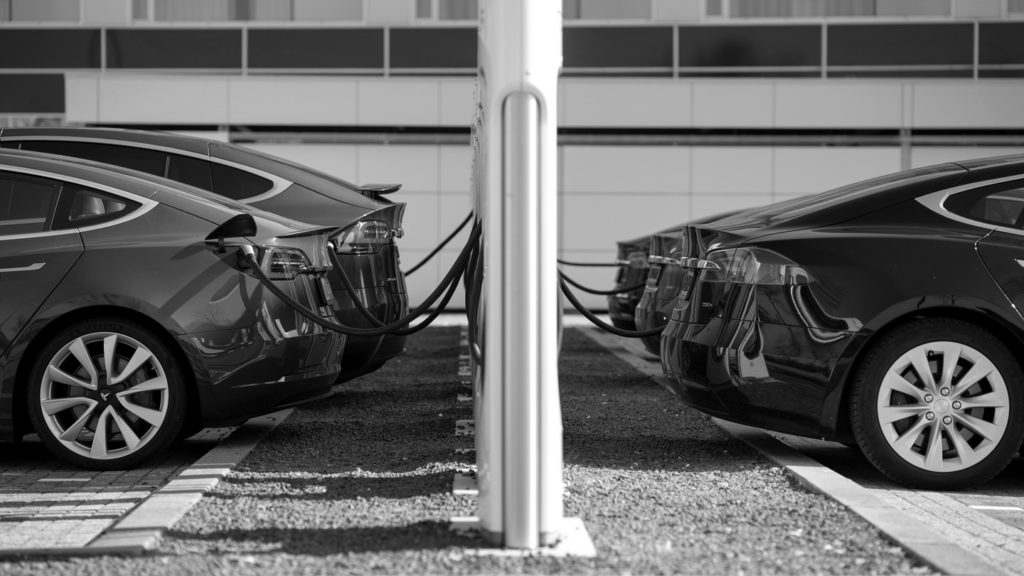Read The Full Article On: Investorplace
Quantum glass stocks are a way to invest in the holy grail for the EV sector
One of the hottest sectors at the moment is the electric vehicle (EV) industry. Whether you look at Tesla (NASDAQ:TSLA), General Motors (NYSE:GM), or Nissan (OTCMKTS:NSANY), every major automaker seems involved. And while there is a lot of excitement surrounding the sector in general, people are also curious about how you will power these vehicles. And that’s why quantum glass stocks are making such great strides.
Quantum glass batteries are a type of solid-state battery. It uses a glass electrolyte and lithium or sodium metal electrodes and represents the holy grail for the EV sector.
Although the EVs are now touted as the car industry’s future, powering them remains a major issue. The main problem is that while EVs are excellent in terms of their minimal impact on the environment, lithium-ion is not the best for storage capacity and recharging times.
Tesla Chief Executive Officer Elon Musk believes that the concept has some juice behind it. His company is exploring it in the hopes of making a “million-mile battery.” It will solve the issues that EVs currently face in terms of refueling. Besides, these batteries will make EVs less expensive than internal combustion machines.
But at this point, they are not that inexpensive. So, there is still a long way to go. Therefore, you should be patient when investing in this space. The good thing is that a couple of names on this list are large conglomerates. Therefore, they have several lines of business that can keep your portfolio safe in the meantime.
So, without further ado, here are three quantum glass stocks to keep an eye on:
Quantum Glass Stocks: Samsung (SSNLF)
Source: JPstock / Shutterstock.com
It may come as a surprise that the electronics giant Samsung is also in the EV game, but there you have it. Samsung’s Advanced Institute of Technology is working on solid-state batteriesto allow EVs to travel up to nearly 500 miles on a single charge and features a cycle life of more than 1,000 charges.
The key here is that in conventional EV batteries, the electrolyte is a liquid. Samsung’s scientists and engineers developed with solid electrolyte technology, which is denser than the liquid approach, allowing some two to 10 times the energy density of lithium-ion batteries of identical size. However, I wouldn’t expect this business segment to give the company massive returns just yet. That will be reserved for large-scale integrated circuit products, application processors and image sensors, among other products.
When you zoom out, you will see that the company remains a market leader across most of its businesses. In the recently concluded quarter, the company’s third-quarter sales rose 52%. Looking ahead, the management foresees a sluggish Q4 given the weaker memory backdrop. However, the long-term thesis for the company remains intact. As the U.S. ramps up restrictions on Huawei and other Chinese companies, Samsung has everything to gain in the long run.
Panasonic (PCRFY)
Source: testing/Shutterstock.com
Our second entry on this list is a major Japanese multinational electronics company, Panasonic. The company has been around since 1918 but has undergone several transformations. And it continues to evolve with the times. Its operations are spread across five segments – one of them being automotive, which comprises electronics, infotainment, mirrors and batteries.
Although the segment is not the biggest contributor to the company, it stands to get larger because of its association with Tesla, the biggest automaker by market cap globally. Panasonic makes battery cells that Tesla connects into battery packs at its Gigafactory. Tesla does not partner with any other company for its battery needs in the U.S., a major win for Panasonic. Despite that, PCRFY stock trades at 14.31x trailing 12 months price-earnings versus TSLA stock, which trades at 788.05x.
Apart from Tesla, the company is also working with Toyota Motor Corp. (NYSE:TM), with whom it will collaborate on developing a new generation of batteries for electric vehicles. The joint venture, named Prime Planet Energy and Solutions, will work on prismatic batteries to sell to other automakers.
Kensington Capital (KCAC)
Source: Tada Images / Shutterstock.com
Our final entry is a special purpose acquisition company (SPAC) – a “blank check” shell corporation designed to take companies public without going through the traditional IPO process.
These companies became more popular this year. So far, from 99 SPAC IPOs, nearly $40 billion in gross proceeds was raised. That compares very favorably with $13.6 billion in gross proceeds from 59 SPAC IPOs in 2019 and $10.8 billion in 2018 from 46 IPOs.
Kensington Capital targets the electric-vehicle industry through its deal with Volkswagen (OTCMKTS:VWAGY)-backed QuantumScape, a manufacturer of large-capacity solid-state lithium-metal batteries. Volkswagen will use the company exclusively for its EV needs. Being the European EV market leader, the fastest-growing EV market on the planet should be reason enough for you to be bullish.
However, it would help if you were patient with this stock. All of the parties involved said they have enough funds to back its ambitions. But the issue is cost-effectiveness and managing demand. Since we are dealing with experimental technology, those issues can be resolved in due time. You need to hang tight and believe in the concept.

